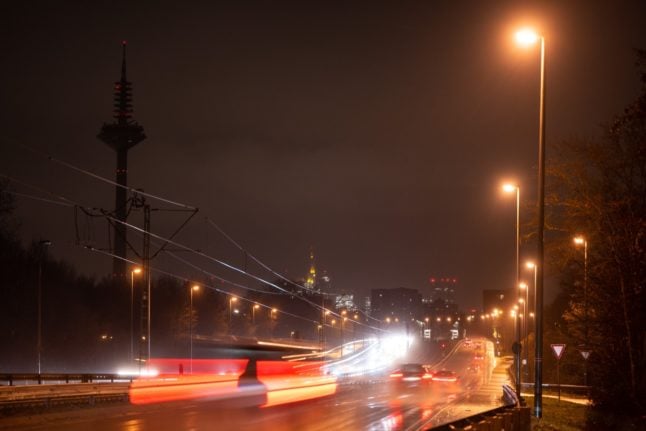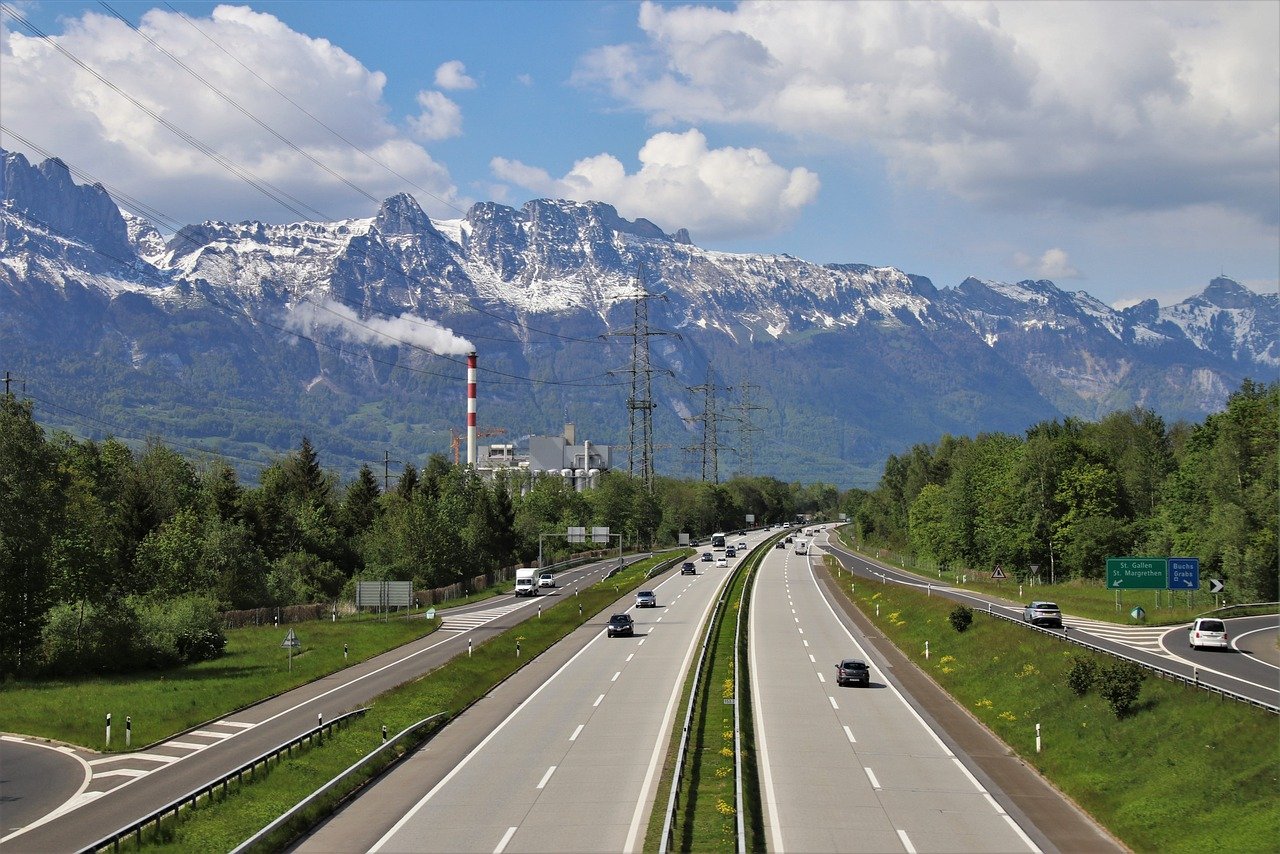Energy price caps come into force
A spate of energy price caps – including the gas price cap, the electricity price cap and the heating price cap – are all due to enter into law in March.
The measures were all introduced amid soaring energy costs driven by the war in Ukraine and Europe’s attempts to wean itself off Russian gas.
Though energy prices have dipped again in recent months, people who are stuck on more expensive tariffs will no doubt appreciate the relief. And even better: the electricity and gas price caps will be backdated to the start of January.
Under the government’s plans, gas prices will be capped at 12 cents per kilowatt hour, while electricity will be capped at 40 cents per kilowatt hour. People who use district heating – or Fernwärme – will see their bills capped at 9.5 cents per kilowatt hour.
A word to the wise, however: since the government is still keen for people to save energy, the cap will only apply to 80 percent of your average usage – based on what you used last year. The remaining 20 percent will be charged at market rates.
READ ALSO: How much could households save under Germany’s new gas price cap?
Refunds for exorbitant heating costs
For people who rely on other forms of heating, such as heating oil, pellets, petroleum or coal, there is some additional relief on the way.
If either of these were purchased before December 2022 and the cost was more than twice that of the most recent purchase, you can apply for a refund from the government. However, you’ll have to have shelled out at the following minimum prices:
– Heating oil: at least €1.21 per litre
– Pellets: at least €0.41 per kilogramme
– Liquefied petroleum gas: at least €0.99 per litre
– Coal: at least €0.17 per kilogramme
There are a few other catches as well. Only 80 percent of the additional costs will be reimbursed, up to a maximum of €2,000, and refunds less than €100 won’t be paid out.
It’s also not possible to submit an application for the refund yet, but we’ll update you as soon as we find out more.
Energy saving measures continue
You may be looking forward to getting nice and toasty again once the heating price caps come in, but in the public sphere, Germany will be keeping its energy-saving agenda firmly in sight.
The set of measures brought in to regulate energy use were originally supposed to expire at the end of February, but they’ve now been extended until April 15th.
Among other things, the law stipulates that workplaces should be heated to a maximum of 19 degrees, while certain public buildings or advertising spaces can only be lit at certain times.

Clocks go forward once again
Fans of lie-ins should brace themselves this March as, yet again, that tricksy devil known as Daylight Savings Time is coming to steal an hour of your sleep.
You may have heard some fierce debate in recent years about whether to get rid of this old agricultural tradition, but so far the discussions have been fruitless – meaning summertime will begin at the end of March yet again.
On March 26th, 2am will magically spring forward and become 3am, which – on the upside – does mean that the evenings will suddenly feel both longer and lighter.
In this smartphone-ridden modern age, you no longer have to worry about re-winding any clocks, either – but just be sure to double-check the time on all your devices in case they don’t update automatically.
Another beer brand hikes its prices
Inflation is biting yet again – and this time it’s fans of Krombacher who will see their wallets emptying that little bit faster. Last month, we reported that Warsteiner had become one of the latest beer brands to increase their prices, and in March, Krombacher is set to follow.
Even if you aren’t a beer drinker – or even a drinker at all – you will still notice some other drinks you like going up in price this month. That’s because Krombacher owns other popular brands like Orangina, Schwepps and Vitamalz, and these will also be affected by the price hikes.
READ ALSO: These are the German energy and food prices which rose in January
Students can apply for €200 energy allowance
After months of waiting, help is finally on the way for students and trainees in Germany. Last September, the government had promised a one-off payment of €200 to assist people in higher education who are struggling to pay their heating bills.
Since then, the Education Ministry has discovered that doling out relief to students isn’t as simple as it first appeared. Since there’s no central database with students’ addresses and bank details, they had to develop a portal where students can apply for the payment – and that portal is finally here.

From March 15th, students and trainees in Germany can submit their details on the portal. To do so, they’ll first need a digital e-ID card (which can be activated at the Ausländerbehörde or Bürgeramt) or an ELSTER certificate, which can be applied for online.
While a date hasn’t yet been set for the payment, the ministry has previously said they want the money to land in students’ accounts in the early part of this year.
READ ALSO: Why students in Germany are still waiting for €200 energy payout
No more Covid tests in clinics and care homes
Following the end of masks in public transport across Germany last month, another set of Covid rules is to end – this time in clinics and care homes.
From March 1st, visitors to elderly people’s homes and other care facilities will no longer need to present a negative Covid test in order to get in. In addition, staff at clinics and in care homes will no longer have to wear Covid masks, and neither will residents.
However, visitors at these facilities will still have to wear a mask and abide by hygiene rules such as social distancing and using hand sanitiser.
In another key Covid-related change, the authorisation for PCR testing centres is due to end on February 28th. In other words, there could be no more PCR testing centres from March onwards.
READ ALSO: Calls to end Covid measures as top German virologist declares pandemic ‘over’
New climate regulations for new-build properties
Think solar panels are just for affluent suburbs or eco-farming projects? Think again. From March 1st, all new commercial and industrial buildings in Germany will have to install – and operate – solar-power generation systems in order to receive planning permission. In plain English, that means you’re about to see a lot more solar panels on roofs across Germany.
In some cases, this applies to ‘change of use’ situations such as attic space being converted into flats, and it also applies to projects that applied for planning permission after a certain cut-off date.

It means owners of some buildings (or joint-owners in an apartment block) could generate some of their energy themselves in the future – or save the electricity generated and sell it on, with profits going to the owners.
Baden-Württemberg launches its ‘Jugendticket’
The so-called Deutschlandticket – or €49 ticket – is due to launch across Germany in May, but for younger residents of Baden-Württemberg, there’s a competitor on the horizon.
In the southwestern state of Baden-Württemberg, young folks under the age of 21 – or students and trainees aged 27 or under – will soon be able to buy an annual transport ticket for just €365. The ticket can be used on local and regional transport across the state and is accepted by all of Baden-Württemberg’s transport operators.
It’s being financed with a whopping €327 million from the state, which will cover about 70 percent of the costs, while local districts will cover the remaining costs.
To find out more about the ticket and how to get your hands on one, check out the Baden-Württemberg state website here. The ticket launches on March 1st and is due to run until 2025.
READ ALSO:
Deutsche Bahn begins major rail track repairs
It’s no secret that Germany’s infrastructure is due for an upgrade, and state-owned rail operator DB is planning a huge spate of projects this March.
Among other projects, the stretch of track between Stuttgart and Nuremberg, the route from Rostock to Stralsund and the line running from Koblenz to Cologne are all due for major renovations, which could cause travel disruptions.
More information on the line upgrades can be found here on the Deutsche Bahn website.

Artists’ social security levy rises
Companies who use journalistic or creative services have to pay what’s know as the Künstlersozialabgabe – a contribution to artists’ social security costs – in certain situations.
This artists’ social security levy has remained at 4.2 percent since 2018, even during the difficult Covid years in which a lot of creatives lost out on work.
This March, however, it’s due to rise to five percent, meaning artists can look forward to a bit of extra money in their social security pot.




 Please whitelist us to continue reading.
Please whitelist us to continue reading.
“The measures were all introduced amid soaring energy costs driven by the war in Ukraine and Europe’s attempts to wean itself off Russian gas”.
Germany is actually committing totally unnecessary economic suicide considering the retreat from Nuclear and the fact that Germany has 20 billion cubic metres of shale gas.
May I add to my comment the 20 billion cubic meters is the reserves of conventional gas. Germany’e reserves of shale gas were established in 2013, when the U.S. Energy Information Administration (EIA) posited that Germany holds technically recoverable shale gas reserves of 481 billion cubic meters.
The economic survival of Germany, not to mention energy security, may very well depend upon these reserves and a return to nuclear.